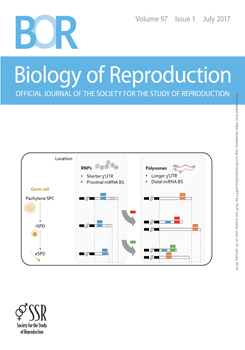Acrosin, the trypsin-like serine protease in the sperm acrosome, was long viewed as a key enzyme required for zona pellucida penetration to fertilize eggs. However, gene disruption experiments in mice surprisingly showed that acrosin-disrupted males were fertile. Thus, the acrosin was considered to be not an essential enzyme for fertilization in mice. However, the involvement of acrosin in fertilization has been suggested in various species such as rat, bull, and pig. Moreover, it has been reported that serine protease (including acrosin) activity in mice is significantly weaker compared to other species, including rats.We analyzed the role of acrosin by disrupting the rat acrosin gene. It was found that, unlike in mice, acrosin was almost the sole source of serine protease in rat spermatozoa. Nevertheless, the acrosin-disrupted males were not infertile. However, the litter size from acrosin-disrupted males was decreased compared to heterozygous mutant rats. Further investigation using an in vitro fertilization system revealed that the acrosin-disrupted spermatozoa possessed an equal ability to penetrate the zona pellucida with wild-type spermatozoa, but the cumulus cell dispersal was slower compared to wild-type and heterozygous spermatozoa. This delay was presumed to be the cause of the small litter size of acrosin-disrupted male rats.
Summary Sentence
Acrosin was practically the sole source of serine protease in rat spermatozoa, but its disruption did not produce infertile males.





